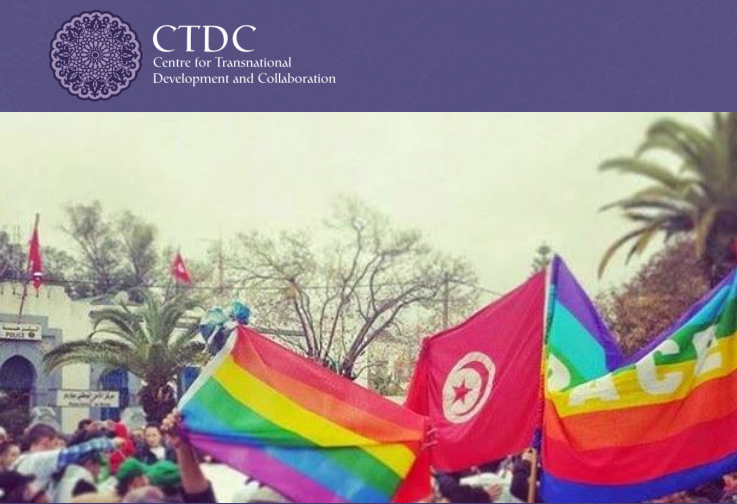The Role of Civil Society in Advancing Gender and Sexual Rights in Tunisia
CTDC Policy Brief No. 7 – January 2018
This policy brief examines the legal, political, and social landscape shaping LGBTQI rights in Tunisia, and outlines how civil society organisations can play a central role in advocating for gender and sexual freedoms. Despite constitutional reforms following the 2011 revolution, discriminatory penal codes continue to criminalise same-sex relations and non-normative gender expression, enabling systematic state-led persecution.
🔍 Key Issues Identified
Articles 230, 231, 227, and 228 of the Tunisian Penal Code criminalise homosexuality, gender non-conformity, and “offences against public morality.”
These laws violate Tunisia’s 2014 Constitution and its international human rights obligations, particularly the right to privacy and freedom from torture.
Repressive practices—such as forced anal testing and harassment of LGBTQI people—continue despite civil society resistance.
Civil society organisations, including Mawjoudin, Damj, and Chouf, have mobilised national and international advocacy, especially during Tunisia’s Universal Periodic Review (UPR).
🛠️ Strategic Recommendations
Legal Advocacy and Reform
Push for the repeal of discriminatory penal code articles and align national law with the 2014 Constitution and international treaties.
Leverage the Constitutional Court to challenge anti-LGBTQI laws.
Coalition Building and Neutral Lobbying
Form cross-sector civil society coalitions to advocate at national, regional, and international levels.
Maintain political neutrality to prevent co-optation of LGBTQI rights by political parties, especially ahead of elections.
Cultural Transformation and Media Engagement
Collaborate with artists, filmmakers, and creatives to challenge restrictive norms and promote sex-positive, inclusive narratives.
Submit audiovisual reports to HAICA documenting media-incited violence and discrimination.
Public Education and Documentation
Support cultural shifts through community-led education and public campaigns.
Investigate and document cases of discrimination to bolster human rights accountability and public awareness.
This brief underscores that changing the law is not enough. A transformative approach must also confront cultural taboos, engage diverse social actors, and empower civil society to uphold the principles of dignity, privacy, and bodily autonomy for all.
👉 To read the full policy brief, click below 👇
Reach to Us
Have questions or want to collaborate? We'd love to hear from you.




